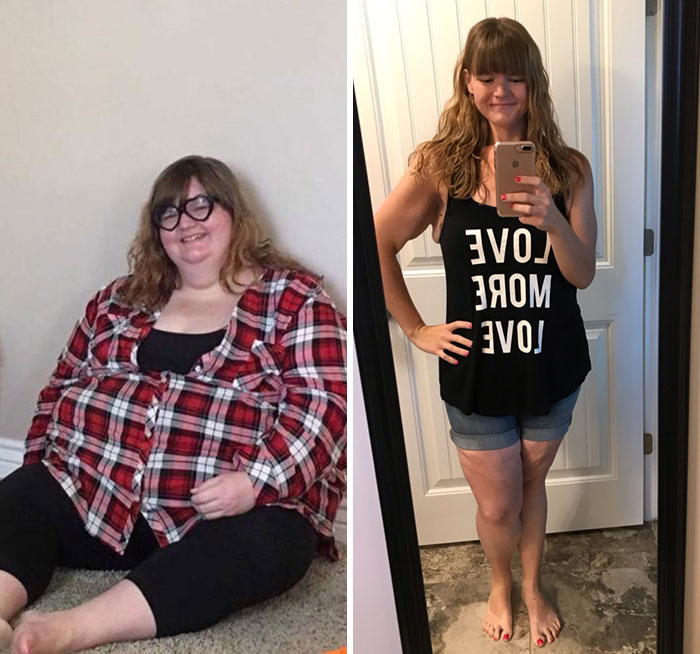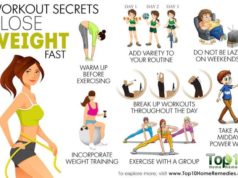How to lose weight after 40 for women is a question that many women face. As we age, our bodies go through hormonal changes that can make it more challenging to maintain a healthy weight. Metabolism slows down, and lifestyle factors can contribute to weight gain.
But don’t despair! Losing weight after 40 is achievable with a balanced approach that considers the unique needs of women in this life stage. This guide will provide practical advice and strategies for healthy weight loss, focusing on nutrition, exercise, and lifestyle changes that can help you reach your goals and feel your best.
This guide will explore the challenges women face after 40, such as hormonal changes and slower metabolism, and provide practical strategies for setting realistic goals, making healthy food choices, incorporating exercise into your routine, and making sustainable lifestyle changes. We’ll delve into the importance of seeking professional guidance and explore various resources available to support your weight loss journey.
Understanding the Challenges
Navigating weight loss after 40 can feel like a whole new game. Your body goes through significant changes, making it harder to shed pounds compared to your younger years. This section will delve into the key challenges you might face, equipping you with the knowledge to tackle them head-on.
Hormonal Changes
Hormonal fluctuations play a major role in weight management after 40. As women age, estrogen levels naturally decline, which can lead to increased belly fat storage and slower metabolism. This shift in hormones can also affect insulin sensitivity, making it harder for your body to regulate blood sugar levels, further contributing to weight gain.
Metabolism Slowdown
Your metabolism naturally slows down as you age, meaning your body burns fewer calories at rest. This can make it challenging to maintain your weight, even with the same diet and exercise routine you followed in your 20s and 30s.
Lifestyle Factors
Beyond hormonal changes and metabolism, several lifestyle factors can contribute to weight gain after 40:
- Stress:Chronic stress can lead to increased cortisol levels, a hormone that promotes fat storage, particularly around the abdomen.
- Sleep Deprivation:Lack of sleep can disrupt hormone balance, increase hunger, and decrease metabolism, making it harder to lose weight.
- Reduced Physical Activity:As we age, we tend to become less active, which can contribute to muscle loss and a slower metabolism.
- Dietary Changes:Changes in eating habits, such as increased consumption of processed foods and sugary drinks, can contribute to weight gain.
Setting Realistic Goals
Losing weight after 40 can be a challenge, but setting realistic goals is crucial for success. It’s important to understand that weight loss is a journey, not a race, and sustainable progress is key.
Importance of Body Composition
Focusing solely on the number on the scale can be misleading. Instead, prioritize body composition, which refers to the ratio of fat mass to lean mass (muscle, bone, and water). A healthy body composition is more important than a specific weight.
- For example, two women might weigh the same but have different body compositions. One might have a higher percentage of muscle mass, which is metabolically active and burns more calories at rest. The other might have a higher percentage of fat mass, which is less metabolically active.Losing weight after 40 can be challenging for women due to hormonal changes and a slower metabolism. While exercise and diet are crucial, some women find it helpful to explore alternative approaches. You might be surprised to learn that there are ways to shed pounds without rigorous workouts or strict meal plans.
Check out How to lose weight without exercise and diet for insights into these methods. These strategies can be particularly helpful for women over 40 who may have limited time or mobility.
Even though they weigh the same, the woman with a higher muscle mass will likely be healthier and have a lower risk of chronic diseases.
Setting Small, Achievable Goals
Instead of aiming for drastic weight loss, focus on small, achievable goals that you can maintain over time.
- For example, aim to lose 1-2 pounds per week, which is a healthy and sustainable rate of weight loss.
- Break down larger goals into smaller steps. For instance, if you want to lose 10 pounds, set a goal of losing 2.5 pounds each month.
- Focus on making gradual changes to your diet and exercise habits. Start with small changes that you can easily incorporate into your daily routine.
Nutrition for Weight Loss

After setting realistic goals, it’s time to focus on your nutrition. This is the foundation of sustainable weight loss after 40. Here’s how to create a healthy eating plan that fuels your body and helps you reach your goals.
Sample Meal Plan
A sample meal plan should include a variety of whole foods, lean protein, and healthy fats. This ensures you’re getting the nutrients your body needs while supporting weight loss. Here’s a sample meal plan:
- Breakfast:Oatmeal with berries and a handful of almonds.
- Lunch:Salad with grilled chicken or fish, mixed greens, and a light vinaigrette.
- Dinner:Baked salmon with roasted vegetables and a side of quinoa.
- Snacks:Greek yogurt with fruit, a handful of nuts, or a piece of fruit.
Importance of Hydration
Staying hydrated is crucial for weight loss and overall health. Water helps you feel full, boosts your metabolism, and flushes out toxins. Aim to drink at least eight glasses of water per day.
Benefits of Nutrient-Dense Foods
Fruits, vegetables, and whole grains are packed with nutrients that support weight loss. They’re low in calories and high in fiber, which helps you feel full and satisfied.
- Fruits:Apples, bananas, berries, oranges, pears.
- Vegetables:Broccoli, spinach, kale, carrots, bell peppers.
- Whole Grains:Brown rice, quinoa, whole-wheat bread.
Comparing Different Diets
Several diets are popular for weight loss. Here’s a comparison of some common options:
| Diet | Description | Suitability for Women Over 40 |
|---|---|---|
| Mediterranean Diet | Focuses on fruits, vegetables, whole grains, lean protein, and healthy fats. | Excellent, as it emphasizes nutrient-rich foods and heart-healthy fats. |
| DASH Diet | Designed to lower blood pressure, but also promotes weight loss by reducing sodium and emphasizing fruits, vegetables, and whole grains. | Good, as it’s heart-healthy and can help manage blood pressure, a concern for many women over 40. |
| Intermittent Fasting | Involves alternating periods of eating and fasting. Various methods exist, such as the 16/8 method or the 5:2 method. | Can be effective for weight loss, but it’s important to consult a doctor before starting, as it may not be suitable for everyone, especially those with certain health conditions. |
Exercise for Weight Loss
Exercise plays a crucial role in weight loss, particularly after 40. It not only helps burn calories but also improves muscle mass, boosts metabolism, and enhances overall health.
Effective Exercises for Women Over 40, How to lose weight after 40 for women
Finding suitable exercises that are both effective and safe is essential for women over
40. Consider these options
Losing weight after 40 can be challenging, but it’s not impossible. One key is to focus on a balanced diet that supports both weight loss and muscle gain. A great resource to explore is The best diet for weight loss and muscle gain , which provides insights on the best foods and strategies to achieve your goals.
By combining a healthy diet with regular exercise, you can successfully lose weight and improve your overall health after 40.
- Cardiovascular Exercise: Engaging in activities that elevate your heart rate for an extended period is vital for weight loss. Consider brisk walking, jogging, swimming, cycling, or dancing.
- Strength Training: Building muscle mass is crucial for boosting metabolism and burning calories even at rest. Choose exercises that target major muscle groups, such as squats, lunges, push-ups, rows, and planks.
- Yoga and Pilates: These practices improve flexibility, balance, and core strength, which are essential for overall well-being and injury prevention.
- Low-Impact Exercise: Opt for exercises that minimize stress on joints, such as swimming, water aerobics, or elliptical training.
Tips for Incorporating Strength Training
Strength training is often overlooked, but it’s essential for women over
40. Here’s how to incorporate it
- Start Gradually: Begin with lighter weights and fewer repetitions. Gradually increase the weight and repetitions as you get stronger.
- Focus on Proper Form: Prioritize correct form over lifting heavy weights. Consult a fitness professional for guidance on proper technique.
- Target Major Muscle Groups: Include exercises that work the legs, arms, back, and core.
- Listen to Your Body: Rest and recovery are crucial. Don’t push yourself beyond your limits.
Finding Enjoyable Activities
Sustaining an exercise routine requires finding activities you genuinely enjoy.
- Explore Different Options: Experiment with various exercises to discover what you find most engaging.
- Find a Workout Buddy: Having a friend to exercise with can provide motivation and accountability.
- Set Realistic Goals: Start with small, achievable goals and gradually increase the intensity and duration of your workouts.
- Make it a Habit: Schedule exercise into your week like any other important appointment.
Adjusting Exercise Intensity
Exercise intensity should be tailored to your individual fitness level and health conditions.
- Consult Your Doctor: If you have any health concerns, consult your physician before starting any new exercise program.
- Listen to Your Body: Pay attention to your body’s signals and adjust the intensity accordingly. If you feel pain, stop and rest.
- Use the Talk Test: You should be able to hold a conversation while exercising. If you’re out of breath and can’t speak, you’re working too hard.
- Vary Your Workouts: Mix up your routine to avoid plateaus and keep your body challenged.
Lifestyle Changes

Beyond nutrition and exercise, certain lifestyle changes can significantly contribute to weight loss after 40. These changes address the underlying factors that often contribute to weight gain at this age, such as stress, sleep deprivation, and hormonal fluctuations.
Losing weight after 40 can be a challenge, but it’s achievable with the right approach. Focus on healthy habits like regular exercise and a balanced diet. You can find helpful tips and strategies on how to lose weight fast and healthy at home , which can be adapted to fit your lifestyle.
Remember, consistency is key, and small changes can lead to big results over time. So, take it one step at a time, and you’ll be well on your way to reaching your weight loss goals.
Managing Stress
Stress can lead to weight gain by triggering the release of cortisol, a hormone that promotes fat storage, particularly in the abdominal area. Effective stress management is crucial for weight loss success.
- Practice Mindfulness:Mindfulness techniques, such as meditation and deep breathing exercises, can help calm the nervous system and reduce stress levels. Aim for at least 10 minutes of mindfulness practice daily.
- Engage in Relaxing Activities:Dedicate time to activities that you enjoy and find relaxing, such as reading, listening to music, spending time in nature, or pursuing hobbies.
- Prioritize Sleep:Adequate sleep is essential for stress management and overall well-being. Aim for 7-9 hours of quality sleep each night.
- Connect with Others:Social interaction and strong relationships can provide support and reduce stress levels. Make time for meaningful connections with friends and family.
Getting Enough Sleep
Sleep plays a vital role in weight regulation by influencing hormone production, appetite control, and energy expenditure.
- Hormonal Balance:Sleep deprivation disrupts the production of leptin, a hormone that signals fullness, and increases ghrelin, a hormone that stimulates hunger. This can lead to increased food cravings and overeating.
- Metabolic Regulation:Sleep deprivation slows down metabolism, making it harder to burn calories and lose weight.
- Energy Levels:Lack of sleep can lead to fatigue and decreased motivation for physical activity, hindering weight loss efforts.
Limiting Alcohol Consumption
Alcohol is high in calories and can contribute to weight gain.
- Empty Calories:Alcohol provides calories without essential nutrients, leading to an increase in overall calorie intake.
- Appetite Stimulation:Alcohol can stimulate appetite and lead to overeating, especially when consumed with meals.
- Metabolic Slowdown:Alcohol consumption can slow down metabolism, making it harder to burn calories.
Final Conclusion
Losing weight after 40 for women requires a holistic approach that considers both physical and mental well-being. By understanding the challenges and embracing a balanced lifestyle that prioritizes nutrition, exercise, and stress management, you can achieve sustainable weight loss and improve your overall health.
Remember, every journey is unique, and it’s important to celebrate small victories along the way. With dedication, patience, and the right strategies, you can reach your goals and feel empowered to embrace a healthier and happier you.
Quick FAQs: How To Lose Weight After 40 For Women
Is it harder to lose weight after 40?
It can be more challenging due to hormonal changes and a slower metabolism, but it’s definitely achievable with the right approach.
What kind of exercise is best for women over 40?
A combination of strength training and cardio is ideal. Focus on exercises that are enjoyable and adapt them to your fitness level.
Are there specific diets that work better for women over 40?
While there’s no one-size-fits-all diet, the Mediterranean diet and DASH diet are often recommended for their focus on whole foods and heart health.
How much weight can I realistically lose in a month?
Aim for a healthy weight loss of 1-2 pounds per week. Rapid weight loss is usually unsustainable and can be unhealthy.
























